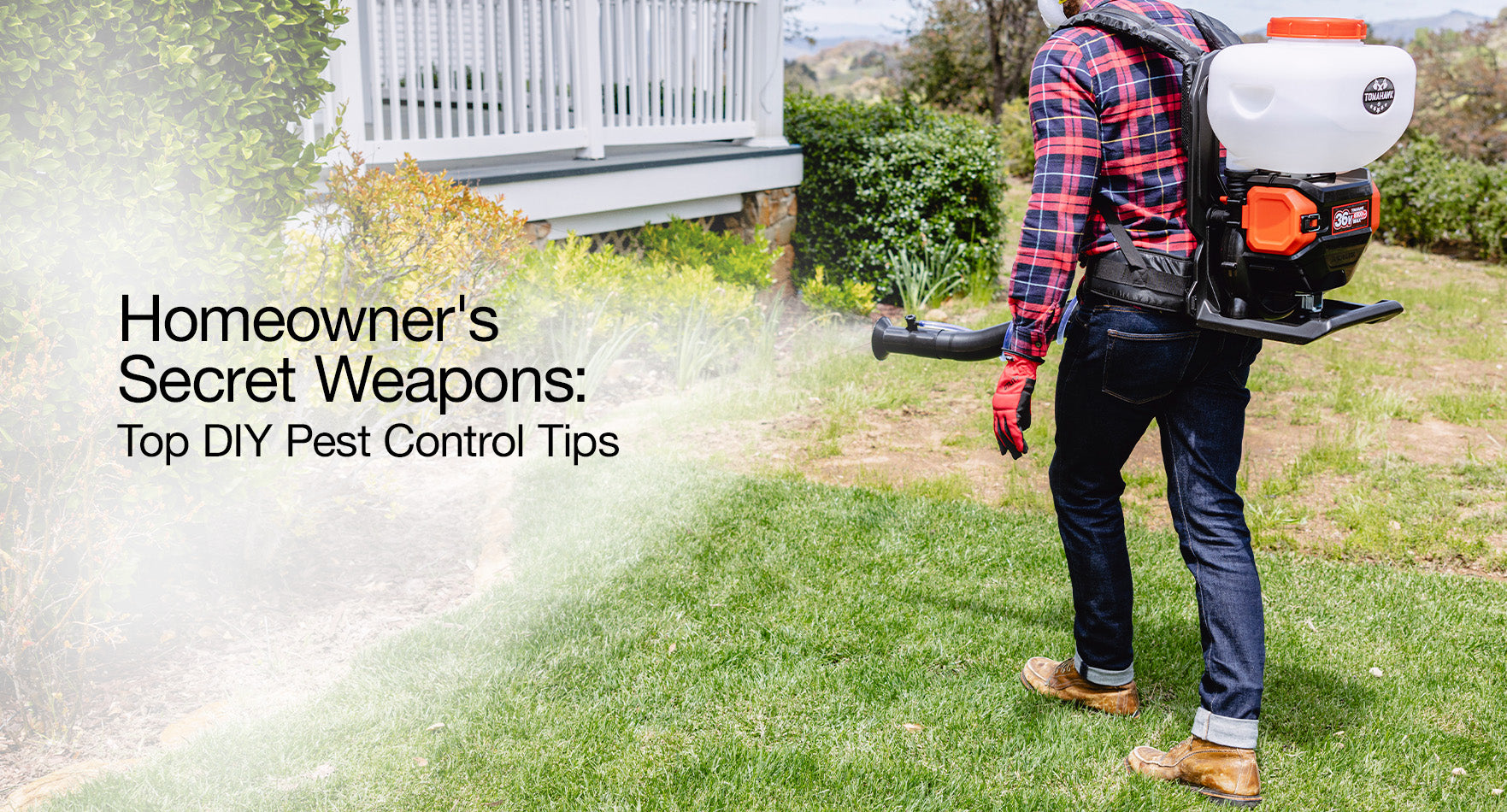Every homeowner knows the frustration of dealing with pests. Whether it's ants marching across your kitchen counter or mice making a home in your attic, pests can quickly turn your cozy haven into a battleground. Fortunately, you don't always need to call in the professionals to reclaim your space. With the right strategies and a bit of effort, you can effectively manage and eliminate pests on your own. Here are some top DIY pest control tips to help you get started.
1. Seal Entry Points
The first step in any pest control plan is to prevent pests from entering your home in the first place.
- Inspect Your Home: Regularly check for cracks, gaps, and holes around windows, doors, and the foundation.
- Use Caulk: Seal any small gaps with caulk. For larger openings, use steel wool or a combination of steel wool and caulk to block entry points.
- Install Door Sweeps: Add door sweeps to the bottom of exterior doors to prevent insects and rodents from slipping inside.
2. Maintain Cleanliness
A clean home is less attractive to pests. Make cleanliness a part of your daily routine.
- Kitchen Hygiene: Wipe down countertops, sweep floors, and promptly clean up spills and crumbs. Store food in sealed containers and take out the trash regularly.
- Regular Cleaning: Vacuum carpets and rugs frequently, and don't forget to clean under furniture and appliances.
- Declutter: Reduce clutter in your home, especially in storage areas like basements and attics, to eliminate hiding spots for pests.
3. Proper Food Storage
Food attracts pests, so proper storage is essential.
- Use Airtight Containers: Store cereals, grains, and other dry goods in airtight containers to keep pests out.
- Refrigerate Perishables: Keep fruits, vegetables, and other perishables in the refrigerator rather than on countertops.
- Pet Food: Store pet food in sealed containers and avoid leaving it out overnight.
4. Outdoor Maintenance
The exterior of your home can also invite pests.
- Trim Vegetation: Keep shrubs, trees, and other vegetation trimmed back from your home to eliminate bridges for pests to enter.
- Yard Cleanup: Remove piles of leaves, wood, and other debris that can serve as breeding grounds for pests.
- Proper Drainage: Ensure your yard has proper drainage to prevent standing water, which can attract mosquitoes and other insects.
5. DIY Pest Control Solutions
There are several homemade remedies and natural solutions you can use to deter pests and spray yourselves.
- Vinegar and Water Spray: A mixture of vinegar and water can repel ants. Spray it around entry points and areas where you've seen ants.
- Essential Oils: Oils like peppermint, eucalyptus, and lavender can deter pests. Mix a few drops with water and spray around your home.
- Boric Acid: Boric acid is effective against cockroaches and ants. Sprinkle it in areas where you've seen these pests, but keep it out of reach of children and pets.
6. Use Traps
Traps can be an effective way to catch and monitor pest activity.
- Sticky Traps: Place sticky traps in areas where you've seen insects to capture them and monitor their numbers.
- Snap Traps: Use snap traps for rodents, placing them along walls and in dark corners where rodents are likely to travel.
- DIY Fruit Fly Traps: A jar filled with apple cider vinegar and a few drops of dish soap can attract and trap fruit flies.
7. Know When to Call a Professional
While DIY methods can be effective, there are times when calling a professional is necessary.
- Severe Infestations: If you have a severe infestation or a pest problem that persists despite your efforts, it may be time to call in an expert.
- Dangerous Pests: For pests that pose health risks, such as bed bugs, termites, or rodents, professional intervention is often the safest and most effective option.
By following these DIY pest control tips, you can take control of your home and keep it pest-free. Remember, consistency is key. Regular maintenance and a proactive approach will help you prevent pests from becoming a problem in the first place. With these secret weapons in your arsenal, you'll be well-equipped to handle any pest that comes your way. Happy pest-proofing!










